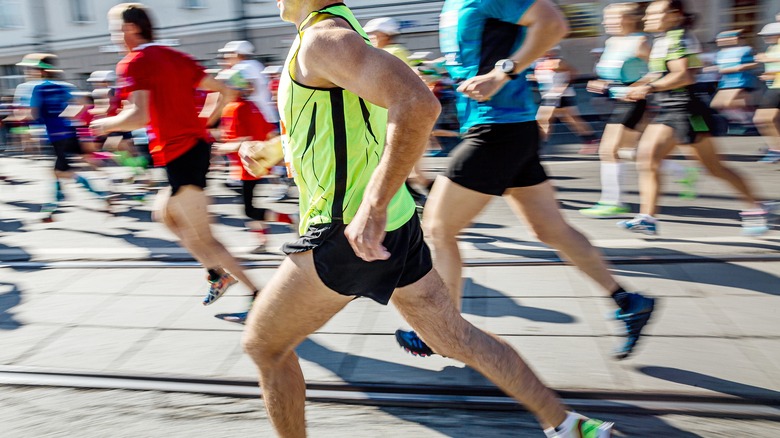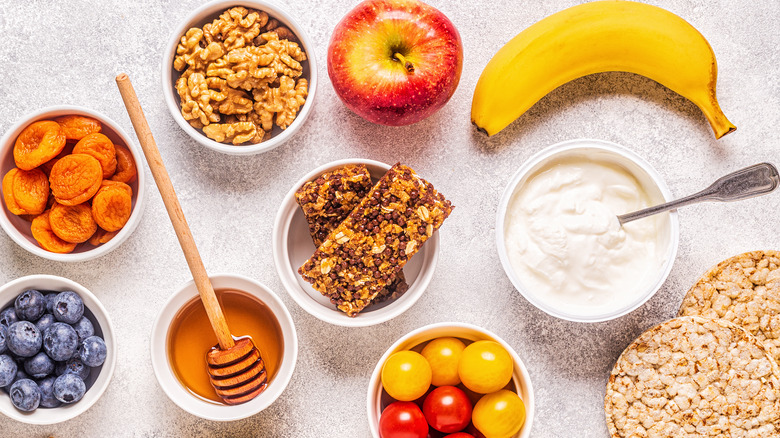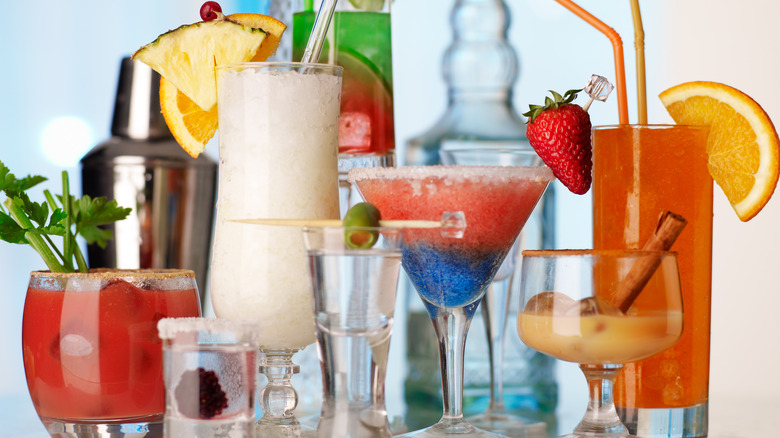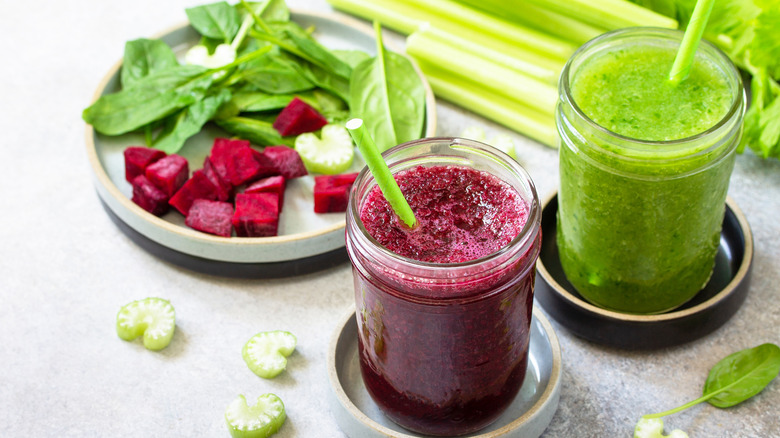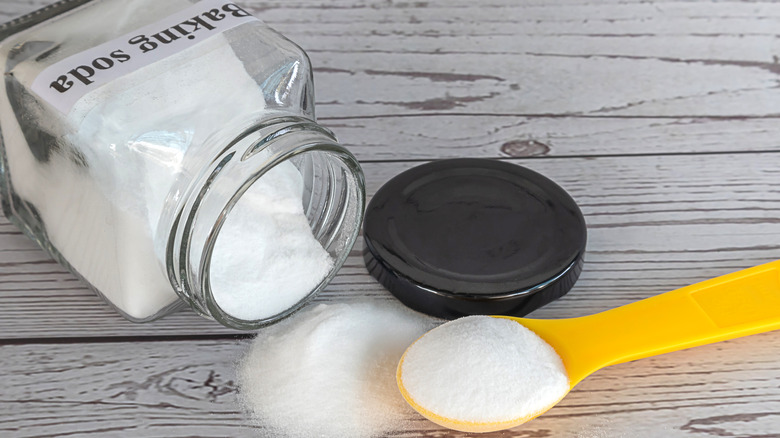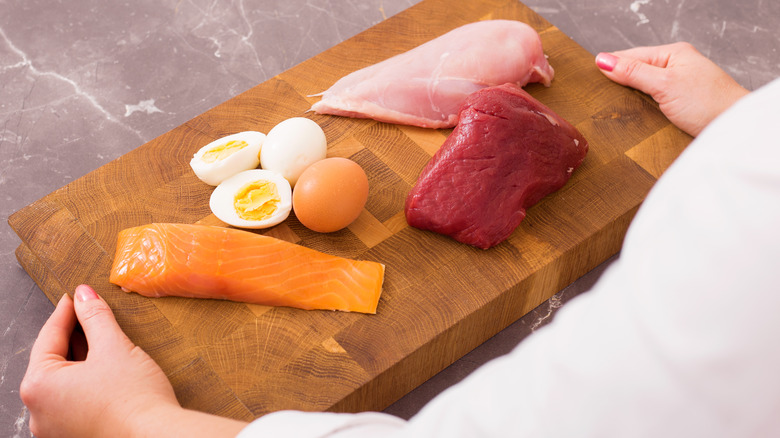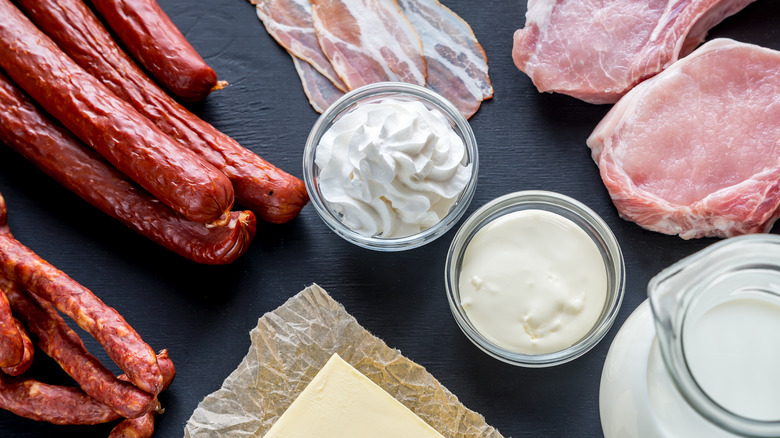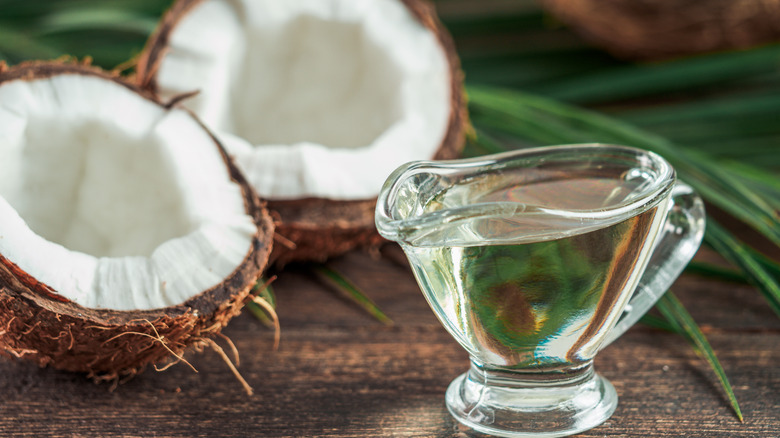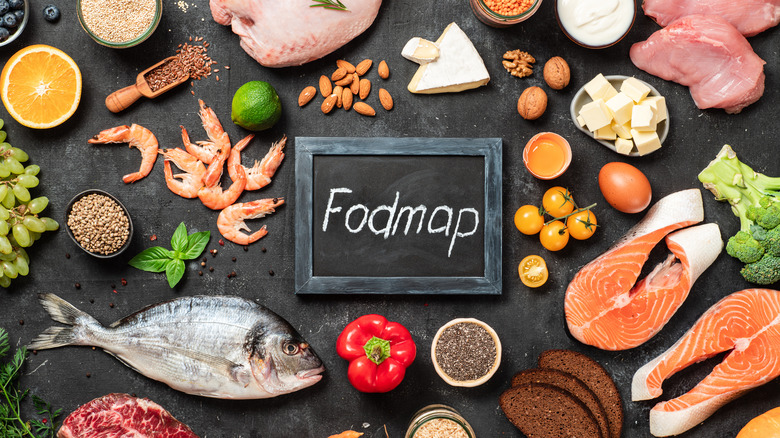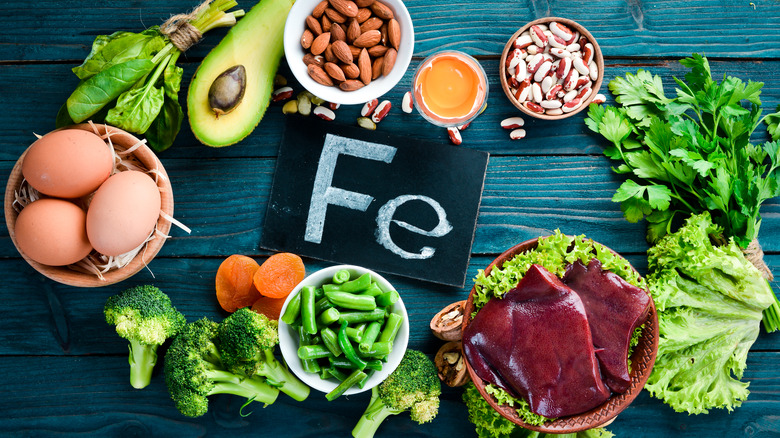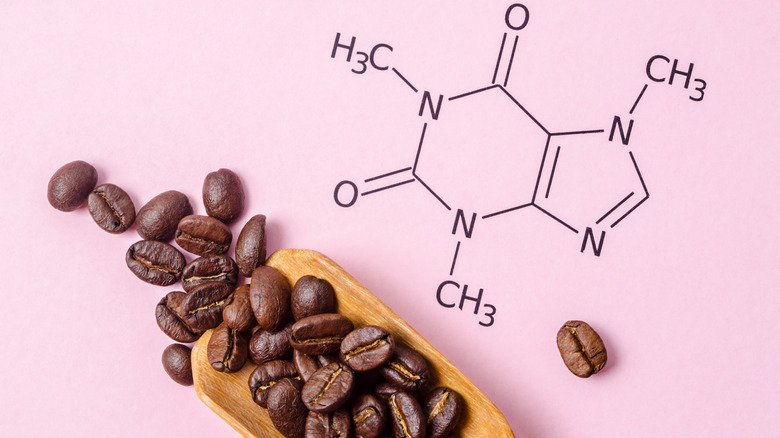5 Best And 5 Worst Foods For Avid Runners
When it comes to sports, the importance of a well-balanced and nutrient-rich diet cannot be overstated, as it directly impacts an athlete's energy levels, endurance, and recovery (via Medical News Today). In short, what you eat has a direct effect on every step of the way, from the very beginning of your training session or competition up to the way your muscles heal afterward.
And when it is time to prep for a race, for avid runners who engage in intense physical activity and place high demands on their bodies, the right fuel becomes even more critical. For example, while carbs ensure an adequate energy supply to meet the needs of training sessions and competitions (via Healthline), you wouldn't want to choose the wrong kind, which could hinder your performance by giving you a stomachache. Similarly, knowing which foods may enhance your endurance can make the difference between winning first or second place. Keep reading if you want to learn more about the five best and worst foods for avid runners.
Eat: Bananas, raisins, honey, and other healthy simple carbs
According to a 2023 study in Nutrients, carbs play key roles throughout athletic training and competition and should be consumed pre-exercise, during exercise, and post-exercise. If you're a runner, eating carbs before a training session helps increase the glycogen stores in your muscles. Glycogen is a form of stored energy in your body (specifically in your muscles and liver), which acts like a fuel reserve that you can tap into when you need energy, such as during physical activity or exercise (via the Cleveland Clinic). Consuming carbs during exercise gives you extra fuel and helps keep your blood sugar levels stabilized. Lastly, you shouldn't avoid carbs after your workout, as eating them after a training session or competition helps both replenish your glycogen stores and speed up your recovery.
Despite their oft-criticized reputation, simple carbs play a significant role in enhancing athletic performance. Simple carbs, such as fresh and dried fruits, honey, juices, chocolate milk, and sports drinks, consist of easily digestible sugars. These sugars are rapidly broken down and absorbed by the body, resulting in a quick increase in blood sugar levels. In other words, they are classified as high glycemic index (GI) foods, and while these are not the best types of carbs when you're looking to lose weight, they provide a fast-acting source of energy before and during a run and even help accelerate post-exercise muscle glycogen recovery, which helps improve exercise performance during your next run.
Avoid: Alcohol
According to an article in Nutrition and Metabolism, drinking alcohol can significantly impact exercise performance and recovery in various ways. Firstly, short- and long-term alcohol intake can have detrimental effects on athletic performance. Consuming it 24 hours before exercising has been shown to reduce aerobic performance (e.g., running) by 11%. At the same time, its chronic intake may lead to a reduction in the number of tiny blood vessels called capillaries within the muscles, which can limit the delivery of oxygen and nutrients to the muscles during exercise.
Secondly, alcohol can also impair the recovery of your glycogen stores after exercise, which is essential to ensuring you have enough energy during physical activity. Additionally, athletes who consume alcohol at least once per week may not only double their risk of injury compared to non-drinkers, but also hinder their body's ability to recover from injury.
While drinking beer after a race has become somewhat common, a review in the International Journal of Sport Nutrition and Exercise Metabolism showed that it might modestly worsen your fluid balance and hydration, which can be problematic if you only have a brief recovery period between exercise bouts. In order to avoid alcohol's detrimental effects on your running performance, The American College of Sports Medicine (ACSM) recommends that if an athlete must consume alcohol, they should refrain from imbibing it at least 48 hours before a competition.
Eat: Beets and dark leafy greens
Nitrate, a compound found naturally in certain vegetables like spinach, kale, lettuce, and beets, can positively impact your body's responses during exercise. Therefore, eating these foods or drinking their juices before a training session or competition can do wonders for your running performance due to their nitrate content.
According to a 2019 review in Nutrients, nitrate is converted into nitric oxide (NO) in the body, which acts as a vasodilator, meaning it widens blood vessels. This effect promotes blood flow and oxygen delivery to working muscles, which, in turn, enhances endurance performance. Moreover, by increasing the diameter of blood vessels, nitrate can reduce the amount of work the heart needs to do to pump blood, leading to better exercise efficiency.
Furthermore, NO can also impact your muscles, allowing muscle fibers to contract more efficiently and produce energy with less oxygen, which can result in improved exercise economy (or how efficiently your body uses fuel and oxygen), prolonged endurance capacity, and higher muscle power. Plus, NO can also help reduce muscle fatigue. Thus, adding nitrate-rich foods to your diet may be a valuable strategy to enhance your endurance and performance.
Avoid: Sodium bicarbonate
Sodium bicarbonate (baking soda) has multiple surprising uses, and has recently become a popular ergogenic aid (meaning that it helps with exercise performance). According to Healthline, the alkaline nature of this kitchen staple helps neutralize the acidity in your muscles during intense exercise, which can delay muscle fatigue and potentially improve performance. Nevertheless, it's important to note that sodium bicarbonate supplementation may not be effective for everyone, as individual responses can vary.
Per a 2022 review in the International Journal of Sports Medicine, some people may experience gastrointestinal (GI) discomfort or side effects when consuming sodium bicarbonate due to its alkaline properties. The neutralization of bicarbonate by the acid in your stomach seemingly plays a key role in the generation of upper GI symptoms because it leads to the production of carbon dioxide (CO2), which may result in bloating, nausea, and reflux. Lower GI symptoms like bowel urgency or diarrhea are also common. This review found that with typical sodium bicarbonate solutions (a dose of 0.3 grams per kilogram of body mass), upper GI symptoms tend to appear from 30 minutes to an hour post-ingestion. In contrast, lower GI symptoms may peak an hour and a half after intake.
Nevertheless, the nature and timing of the symptoms may vary depending on dosage, delivery form, and whether it was consumed with or without food. Take smaller doses or coated capsules and consume with carb-rich foods if you want to give sodium bicarbonate a chance without risking a mid-race stomachache.
Eat: Eggs, chicken, fish, and other lean protein sources
When it comes to improving running performance, people's minds automatically turn toward the benefits of a carb-rich diet. However, scientific research suggests that another nutrient may play an equally important role. According to a 2017 study in the Journal of the International Society of Sports Nutrition, while protein is not a preferred energy source and, thus, may not directly improve exercise performance, it does have an essential role in muscle recovery and rebuilding post-athletic events, which is also vital if you want to enhance your athletic abilities.
Consuming carbs together with 0.25 grams of protein per kilogram of body weight for every hour of exhaustive endurance exercise (such as a marathon) may help reduce markers of muscle damage 12 to 24 hours post-exercise, while also decreasing the feelings of muscular soreness or fatigue. This is because since proteins are the building blocks of your body's tissues, consuming them while performing intense training bouts or athletic events helps repair and rebuild skeletal muscle and connective tissues. Moreover, another study in Frontiers in Nutrition states that when someone doesn't consume enough carbs after exercising, adding protein to their diet can help refill their energy stores and reduce muscle damage. Plus, it can also help with rehydration. Therefore, make sure to add some lean protein sources, such as eggs, poultry, or fish, to your post-run meals.
Avoid: Unhealthy fats
While some athletes have shifted towards a fat-based diet with good performance results, following a diet high in unhealthy fats may pose a couple of challenges. According to a 2023 study in the International Journal of Environmental Research and Public Health, high-fat diets, typically characterized by an increased consumption of unhealthy saturated fats, have been found to increase blood viscosity. When the blood becomes thicker due to increased fat content, it circulates less efficiently, which can hinder oxygen and nutrient delivery to working muscles. A reduced blood flow and oxygen supply may lead to poorer muscle oxidation, impacting an athlete's performance, especially during endurance activities.
Moreover, this type of diet can also contribute to weight gain or difficulty in maintaining an ideal body weight for athletic performance. Since fats are calorie-dense nutrients, consuming a diet high in unhealthy fats can result in a higher caloric intake, potentially leading to an increase in body weight. The extra weight could negatively affect an athlete's speed, agility, and overall mobility, consequently hampering their athletic performance (via BuiltLean). Keep in mind that this does not mean that you should refrain from eating fats whatsoever. In fact, per a review in Nutrients, athletes who chronically restrict fat to less than 20% of their total energy intake are at risk of low intake of important fat-soluble vitamins and essential fatty acids like omega-3. Therefore, a well-balanced diet with appropriate distribution and healthy food sources of all macronutrients is generally recommended.
Eat: MCT-rich products
While carbs are the preferred source of energy for many runners and other endurance athletes, a review in Nutrients explains that medium-chain triglycerides (MCTs) have become popular among endurance athletes due to their effects on your body's energy supplies, which can lead to enhanced endurance exercise performance. Unlike other types of fats, which need bile acids to be digested, MCTs are a unique type of fat that is rapidly absorbed and metabolized much faster by the liver for energy production, serving as an efficient source of readily available fuel. Thus, MCTs can provide a quick source of energy during exercise, sparing the glycogen stores in the muscles, which can help delay fatigue and improve endurance.
Moreover, a 2018 study in Plos One found that MCTs may also increase muscle strength and function in humans. MCTs can be consumed in a variety of ways, including through dietary sources like coconut oil, palm kernel oil, and dairy products. Plus, specialized MCT oil supplements are also available for athletes seeking a more concentrated source. Nevertheless, as with any other nutritional supplement, it is important to seek guidance from a qualified sports nutrition professional to get personalized recommendations that fit your needs.
Avoid: High-FODMAP foods
Fermentable oligosaccharides, disaccharides, monosaccharides, and polyols (FODMAPs) are carbs that resist digestion and are poorly absorbed in the small intestine. This can result in gastrointestinal symptoms such as bloating, gas, abdominal pain, and diarrhea due to increased water content and gas production once they reach your large intestine (via Healthline). Therefore, avoiding high-FODMAP foods is commonly recommended for people with digestive disorders.
Yet, per a study in Medicine & Science in Sports & Exercise, about 30% to 50% of endurance athletes report high rates of GI distress. This happens partly because, while performing a strenuous exercise, your body reduces blood flow to your gut and redirects it towards your working muscles, which can cause small injuries to your gut cells. This allows nutrients that shouldn't pass through your gut to pass through while changing how your gut moves food along. All of these can trigger problems in your digestive system during exercise.
According to an article in the Journal of the International Society of Sports Nutrition (ISSN), runners and other endurance athletes may also benefit from avoiding high-FODMAP foods (e.g., dairy, wheat-based products, beans and lentils, and some fruits and vegetables like apples, peaches, onion, and garlic), seeing that for individuals who engage in endurance exercise, maintaining a healthy gastrointestinal system is essential for optimal performance. Instead, opt for eggs, meat, plant-based milks, quinoa, potatoes, or rice, and fruits and vegetables like grapes, strawberries, tomatoes, and zucchini during training or before a race (via Johns Hopkins Medicine).
Eat: Poultry, meat, beans, and other iron-rich foods
According to a 2020 review in Nutrients, runners, especially those engaging in intense and endurance training, are at a higher risk of developing iron deficiency. This is due to several factors unique to running, including increased iron losses through sweat, urine, and gastrointestinal bleeding, as well as an increased demand for iron to support red blood cell production and oxygen transport. Iron deficiency can have negative implications for athletic performance, as iron is an essential component of hemoglobin, the molecule responsible for carrying oxygen to working muscles. Without an adequate supply of iron, less oxygen is transported to the muscles, which can hamper endurance and performance.
Moreover, a study in Frontiers in Sports and Active Living suggests that endurance athletes such as runners also have an increased risk of micronutrient deficiency because of low energy consumption, longer exercise duration, and increased sweat rate. However, iron supplementation has been shown to improve aerobic capacity in athletes with iron deficiency anemia (IDA) and may also be beneficial for athletes who are iron-deficient but non-anemic (IDNA).
Therefore, if you're low on iron, you would benefit from eating foods such as lean meats, seafood, legumes, fortified cereals, and leafy green vegetables. Regular monitoring of iron levels through blood tests is also essential to assess your iron status and adjust your dietary and supplementation strategies, especially since iron supplementation does not benefit athletes with normal iron status and may lead to iron overload.
Avoid: Caffeine
According to an article in the Journal of the International Society of Sports Nutrition (ISSN), caffeine is a widely consumed stimulant that many athletes now incorporate into their training routines to enhance performance thanks to its ability to increase alertness and spare the use of carbs as an initial source of energy. However, it's important to acknowledge that caffeine can also have adverse effects on athletic performance, primarily due to gastrointestinal (GI) discomfort.
As a 2022 review published in the International Journal of Sports Medicine explains, caffeine (especially when consumed from coffee) can have a stimulating effect on the GI tract, causing an increase in intestinal motility, promoting defecation, and causing loose stools. This can be highly problematic during exercise, potentially leading to discomfort, distraction, and a decline in performance. Moreover, caffeine has been shown to cause nausea in certain people when consumed at high doses, and its intake during times of high mental stress and anxiety, such as during a marathon or competition, may increase the likelihood of caffeine-induced nausea (and further hinder athletic performance).
Plus, per the ISSN article, there is some concern surrounding the ingestion of caffeine before exercising, as it may contribute to dehydration due to its mild diuretic effect (meaning that it promotes increased urine production). Therefore, if you often experience unpleasant GI symptoms, avoiding or reducing your caffeine intake before going for a run may prove beneficial.

